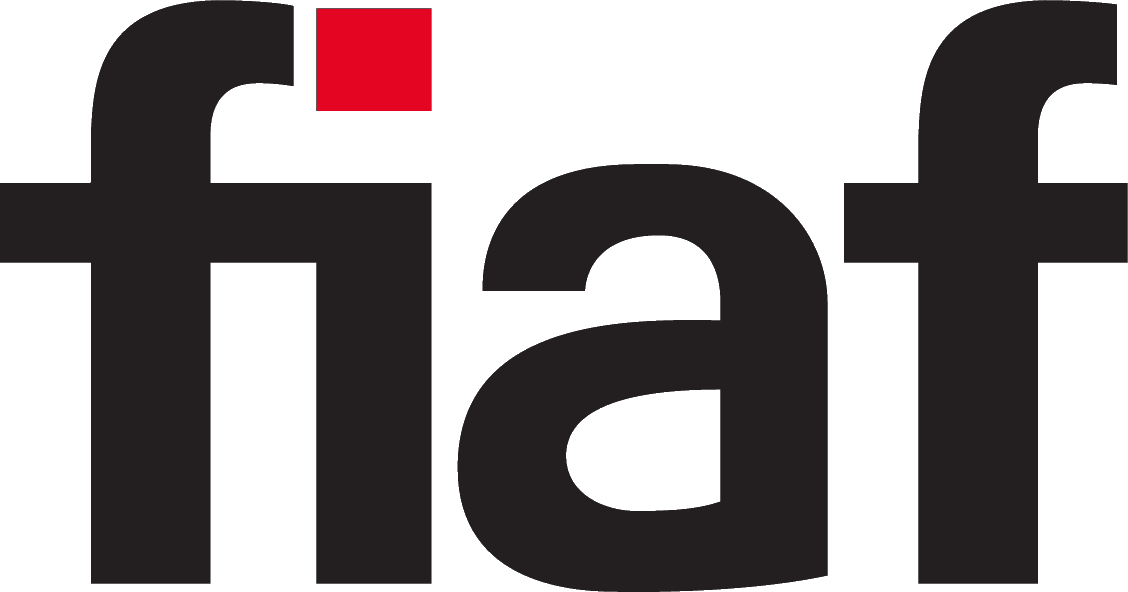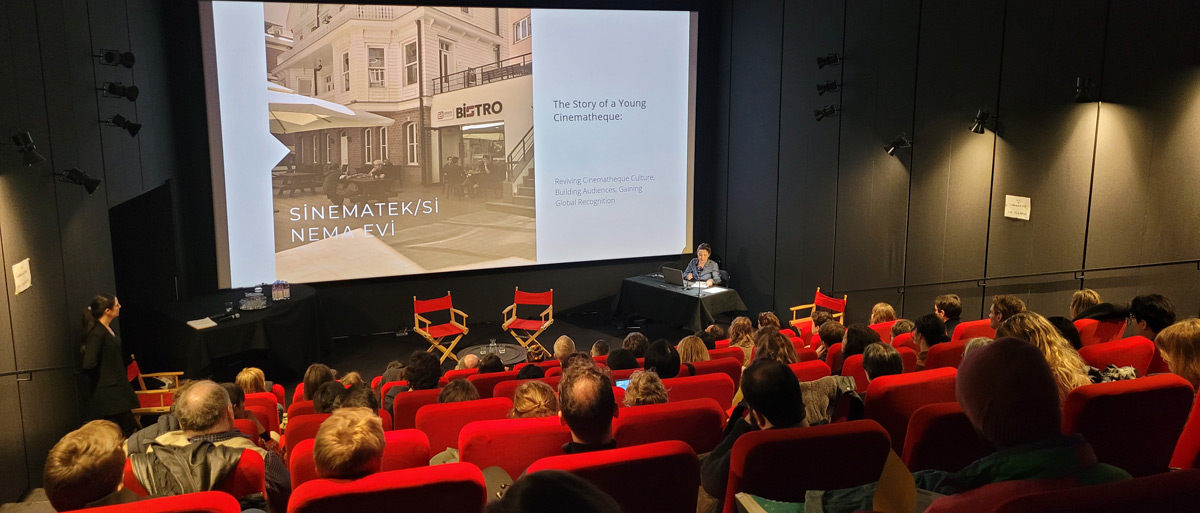
10th FIAF Programming Winter School
10e Winter School de programmation
Day 1: Monday 3 March 2025, Fondation Jérôme Seydoux-Pathé
1er jour : lundi 3 mars 2025, Fondation Jérôme Seydoux-Pathé
09:00
Welcome of the Participants
Accueil des participant·e·s
09:45
Opening of the 10th Winter School and Introduction to the Course
Ouverture de la 10e Winter School et présentation du cours
10:00
Programming India’s Film Heritage
Programmer le patrimoine cinématographique indien
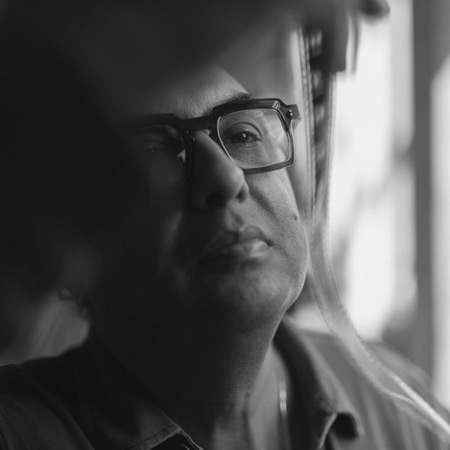
Shivendra Singh Dungarpur
Shivendra Singh Dungarpur is an award-winning filmmaker, producer, and archivist. He has produced and directed close to 1200 advertising films as well as short films and documentaries under the banner of his production house “Dungarpur Films”. His first feature documentary Celluloid Man (2012) won two National Awards. His second documentary, The Immortals (2015), premiered at the Busan International Film Festival and won the Special Jury Award for the Best Film at MIFF 2016. His third documentary, CzechMate – In Search of Jiří Menzel, is a seven-hour epic in-depth exploration of the Czech New Wave that has won critical acclaim from cinephiles around the world. The BFI’s magazine Sight and Sound voted the film one of the top 5 Blu-ray releases of 2020. In 2014 he established Film Heritage Foundation (FHF), a not-for-profit organization dedicated to preserving and restoring India’s film heritage. FHF is the only non-governmental organization working in the field of film preservation in India. Shivendra is the Festival Director of the MAMI Mumbai Film Festival. He is also a member of the Executive Committee of FIAF, the Artistic Committee of the Cinema Ritrovato Festival in Bologna, and the Honorary Committee of the George Eastman Museum’s Nitrate Picture Show.
Shivendra Singh Dungarpur est un cinéaste primé, producteur et archiviste. Il a produit et réalisé près de 1200 films publicitaires ainsi que des courts métrages et des documentaires sous la bannière de sa maison de production « Dungarpur Films ». Son premier long métrage documentaire Celluloid Man (2012) a remporté deux prix nationaux. Son deuxième documentaire The Immortals (2015) a été présenté en avant-première au Festival international du film de Busan et a remporté le prix spécial du jury pour le meilleur film au MIFF 2016. Son troisième documentaire, CzechMate - In Search of Jiří Menzel, est une exploration épique en profondeur de sept heures de la nouvelle vague tchécoslovaque qui a été acclamée par les cinéphiles du monde entier. Sight and Sound, le magazine du British Film Institute, a classé le film parmi les cinq meilleures sorties Blu-ray de l'année 2020. En 2014, il a créé la Film Heritage Foundation (FHF), une organisation à but non lucratif dédiée à la préservation et à la restauration du patrimoine cinématographique indien. FHF est la seule organisation non gouvernementale travaillant dans le domaine de la préservation des films en Inde. Shivendra est le directeur du festival du film de MAMI Mumbai. Il est également membre du Comité directeur de la FIAF, du comité artistique du festival Il Cinema Ritrovato de Bologne et du comité honoraire du Nitrate Picture Show, le festival du George Eastman Museum.

Eva Markovits
Eva Markovits is a programmer in the Cinémas department of the Centre Pompidou. She was a selector for the Belfort, Brive, and Amiens festivals after working as a programmer at the Cinémathèque française. She has also been in charge of the editing residency at Périphérie, and worked as a journalist for the repertory cinema programme Viva Cinéma on Ciné +. She was on the editorial board of Cahiers du Cinéma and contributed to the magazines Trafic, Images documentaires, and Critikat. Among other projects, she co-edited the first book in France devoted to an interview with filmmaker Alice Rohrwacher, Le Vrai du Faux (2023), with Judith Revault d'Allonnes, collaborated on the first book in France on the work of Apichatpong Weerasethakul, Homes (2024), and on the book and DVD edition of the complete films of Damien Odoul (2024). She worked on the full-length retrospectives of filmmakers Ritwik Ghatak at the Cinémathèque française in 2011 and Guru Dutt at the Festival d'Amiens in 2014. She has collaborated with Amandine d'Azevedo on two programmes: the first dedicated to contemporary Indian medium-length films for the Brive Festival in 2016, and the other in 2021, for the Belfort Festival, on the figure of the artist in Indian cinema. She is currently preparing a book on Satyajit Ray the artist, in collaboration with Amandine d'Azevedo, to be published by Éditions de l'Œil in 2025.
Eva Markovits est programmatrice au service des Cinémas du Centre Pompidou. Elle a été sélectionneuse pour les festivals de Belfort, Brive et Amiens après avoir été chargée de programmation à la Cinémathèque française. Elle a également occupé le poste de responsable de la résidence de montage à Périphérie, travaillé comme journaliste pour l’émission de cinéma de répertoire, Viva Cinéma, sur Ciné +. Elle a fait partie du comité de rédaction des Cahiers du cinéma et a contribué aux revues Trafic, Images documentaires et Critikat. Elle a entre autres codirigé le premier livre d'entretien en France consacré à la cinéaste Alice Rohrwacher, Le Vrai du faux (2023) avec Judith Revault d'Allonnes, collaboré au premier livre en français sur le travail d’Apichatpong Weerasethakul, Homes (2024) et à l'édition livre-dvd de l'intégrale des films de Damien Odoul (2024). Elle a travaillé sur les rétrospectives intégrales des cinéastes Ritwik Ghatak à la Cinémathèque française en 2011 et Guru Dutt au Festival d'Amiens en 2014. Elle a collaboré avec Amandine d'Azevedo sur deux programmations : la première consacrée au moyen métrage indien contemporain pour le festival de Brive en 2016 et l'autre en 2021, pour le festival de Belfort, sur la figure de l'artiste dans les cinémas indiens. Elle prépare actuellement un ouvrage sur Satyajit Ray artiste en collaboration avec Amandine d'Azevedo aux Éditions de l'Œil dont la sortie est prévue en 2025.
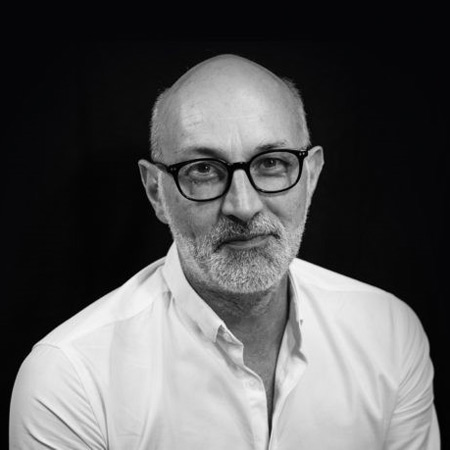
Jérôme Baron
After completing doctoral research into the history and aesthetics of cinema at the Universities of Paris 8 and Paris 3, Jérôme Baron has devoted himself to the programming of the 3 Continents festival, of which he has been artistic director since 2010. He also taught the history and aesthetics of documentary film at the University of Poitiers (1999-2006), and since 2001 has taught film history and film analysis in the Ciné-Sup preparatory class for the competitive entrance exams to the Louis Lumière and Fémis film schools. Since 2004, he has been president of the Cinématographe, a community cinema in Nantes city centre specializing in the screening of film heritage which is renowned for its innovative educational projects. He has given numerous lectures in France and abroad on various aspects of cinema (notably African and Asian), published works on Jacques Demy (Editions 303), and edited a collective work for the 40th Festival des 3 Continents entitled D'autres continents - Mouvances du cinéma présent (Warm édition). He is currently a member of Aide aux Cinémas du Monde and of Caméra libre.
Après des recherches doctorales sur l'histoire et l'esthétique du cinéma aux Universités Paris 8 et Paris 3, Jérôme Baron se consacre à la programmation des 3 Continents dont il est le directeur artistique depuis 2010. Parallèlement, il enseigne l'histoire et l’esthétique du cinéma documentaire à l'Université de Poitiers (1999-2006) et enseigne depuis 2001 l'histoire du cinéma et l'analyse filmique en classe préparatoire Ciné-Sup, classe préparatoire aux concours des grandes écoles nationales (Louis Lumière et Fémis). Depuis 2004, il est président du Cinématographe, une salle de cinéma associative du centre-ville de Nantes spécialisée dans la diffusion du patrimoine cinématographique et reconnue pour ses projets innovants en termes de formation pédagogique et d’éducation populaire. Il a donné de nombreuses conférences en France et à l’étranger sur différents aspects du cinéma (notamment d’Afrique et d’Asie) et publié des ouvrages sur Jacques Demy (Editions 303), et dirigé à l’occasion du 40e Festival des 3 Continents un ouvrage collectif intitulé D’autres continents – Mouvances du cinéma présent (Warm édition). Il est actuellement membre de l’Aide aux Cinémas du Monde et de Caméra libre.
11:30
Coffee Break
Pause café
12:00
Film Heritage in the Regions – From Collecting to Screening
Mémoire filmique des territoires, de la collecte à la projection
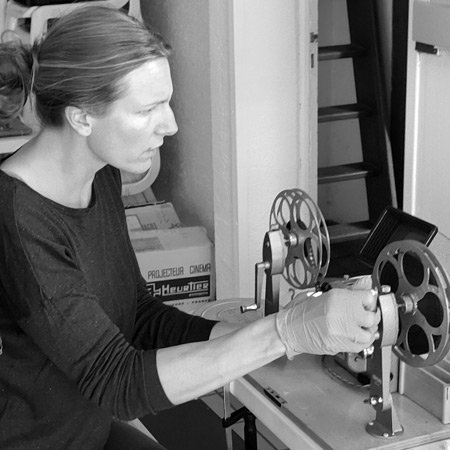
Stéphanie Ange
Stéphanie Ange studied Ancient Greek History before embarking on a professional Master’s in Heritage Management (2009-2010). She worked for 10 years as a project manager in the field of amateur audiovisual archives at the Cinémathèque des Pays de Savoie et de l'Ain (2010-2019) and has been coordinating the Diazinteregio national network of film archives since 2015, as well as the Amorce platform since 2024. In 2021, along with Margot Lestien and Pierre Bouchut, she helped set up the Ofnibus association, which she now coordinates.
Stéphanie Ange a suivi des études d’histoire grecque antique avant de s’orienter vers un Master professionnel en Gestion du patrimoine (2009-2010). Elle a travaillé pendant 10 ans en tant que chargée de projets dans le domaine des archives audiovisuelles amateurs à la Cinémathèque des Pays de Savoie et de l’Ain (2010-2019) et coordonne le réseau national de cinémathèques Diazinteregio depuis 2015 ainsi que la plateforme Amorce depuis 2024. En 2021, avec Margot Lestien et Pierre Bouchut, elle participe à la création de l’association Ofnibus qu’elle coordonne désormais.
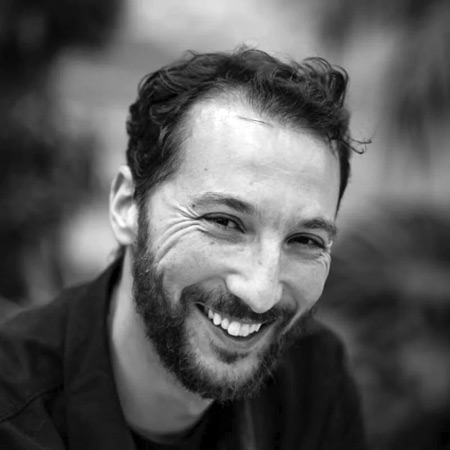
Nabil Djedouani
Nabil Djedouani is a film director, researcher, and restorer. After studying cinema, he co-directed a documentary film in Algiers with Hassen Ferhani entitled Afric Hôtel (2010). He then worked with filmmaker Rabah Ameur-Zaïmeche as assistant director and actor on the films Histoire de Judas (2015) and Terminal Sud (2019). In 2012, he created the Archives Numériques du Cinéma Algérien, an initiative aimed at restoring and making accessible Algerian cinematographic works that are often forgotten or hard to find. This involves collecting, restoring, and sharing films on platforms such as YouTube and via a dedicated page on social networks.
Nabil Djedouani est réalisateur, chercheur et restaurateur de films. Après des études de cinéma, il coréalise à Alger un film documentaire avec Hassen Ferhani intitulé Afric Hôtel (2010). Il travaille ensuite avec le cinéaste Rabah Ameur-Zaïmeche en tant qu'assistant réalisateur et comédien pour les films Histoire de Judas (2015) et Terminal Sud (2019). En 2012, il a créé les Archives Numériques du Cinéma Algérien, une initiative visant à restaurer et à rendre accessibles des œuvres cinématographiques algériennes souvent oubliées ou difficiles à trouver. Cette démarche passe par la collecte, la restauration et le partage de films sur des plateformes comme YouTube et via une page dédiée sur les réseaux sociaux.
13:00
Lunch at the Fondation Jérôme Seydoux-Pathé and visit of the Foundation's current exhibition
Déjeuner à la Fondation Jérôme Seydoux-Pathé et visite libre de l'exposition actuelle de la Fondation
14:30
Screening: Celluloid Underground (Ehsan Khoshbakht, Iran/UK, 2023, 80 mins)
Projection : Celluloid Underground (Ehsan Khoshbakht, Iran/Royaume-Uni, 2023, 80 mins)
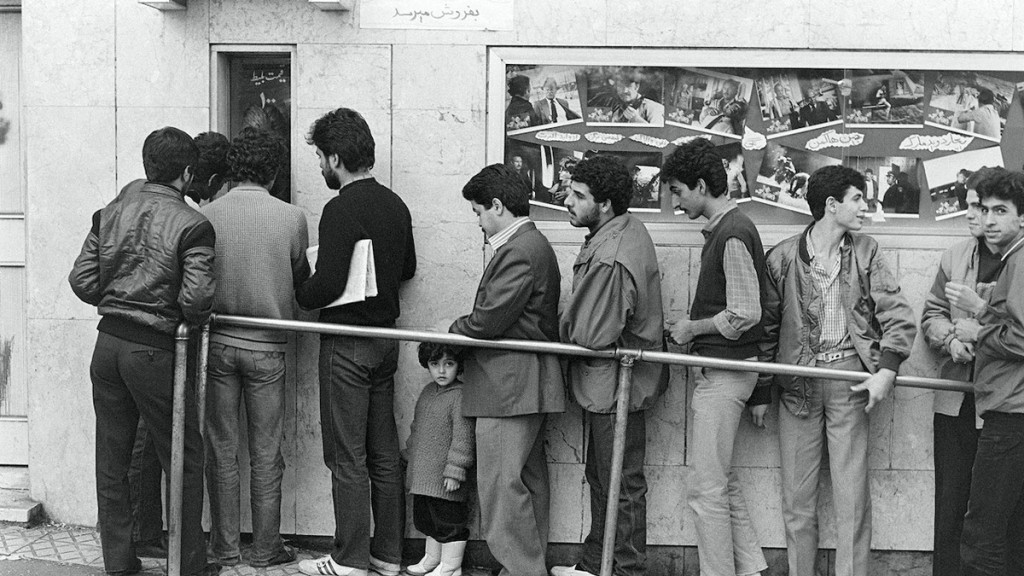
15:50
Portrait of a programmer: Ehsan Khoshbakht
Portrait de programmateur : Ehsan Khoshbakht
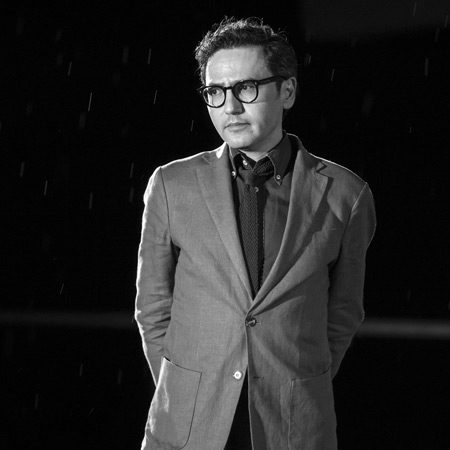
Ehsan Khoshbakht
Ehsan Khoshbakht is a film curator, filmmaker, and writer. He serves as the co-director of Il Cinema Ritrovato in Bologna and curates the retrospective section of the 2025 Locarno Film Festival. Most recently, he programmed a major season of Iranian pre-revolutionary films for the Museum of Modern Art (MoMA) in New York and a first-time retrospective dedicated to director Anatole Litvak at the Cinemateca Portuguesa in Lisbon. His latest film, Celluloid Underground, premiered at the 2023 London Film Festival and was nominated for the John Grierson Award for Best Documentary. Ehsan's newly edited volume, The Lady with the Torch: Columbia Pictures, 1929–1959, was published in August 2024 by Les Éditions de l’Œil in Paris, in conjunction with a retrospective of the same name that he curated for Locarno, now touring in various European cities.
Ehsan Khoshbakht est programmateur, cinéaste et écrivain. Il est également codirecteur d’Il Cinema Ritrovato à Bologne et commissaire de la section rétrospective du Festival du film de Locarno 2025. Plus récemment, il a organisé une grande programmation de films iraniens pré-révolutionnaires pour le Museum of Modern Art (MoMA) de New York et une première rétrospective consacrée au réalisateur Anatole Litvak à la Cinemateca Portuguesa de Lisbonne. Son dernier film, Celluloid Underground, a été présenté pour la première fois au London Film Festival 2023 et a été nominé pour le prix John Grierson du meilleur documentaire. Le nouveau volume édité par Ehsan, The Lady with the Torch : Columbia Pictures, 1929-1959, a été publié en août 2024 par Les Éditions de l'Œil à Paris, en même temps que la rétrospective du même nom qu'il a organisée à Locarno et qui est actuellement en tournée dans plusieurs villes européennes.
16:30
Coffee Break
Pause café
16:50
Ehsan Khoshbakht: Programming Practice
Ehsan Khoshbakht : Pratique de la programmation
17:30
Programming Game (Groups 1 & 2)
Jeu de programmation (groupes 1 & 2)
18:30
End of Day One
Fin de la première journée
Day 2: Tuesday 4 March 2025, Cinémathèque française
2e jour : mardi 4 mars 2025, Cinémathèque française
09:15
Welcome of the Participants
Accueil des participant.e.s
09:30
Programming Militant/Political Film Heritage
Programmer le patrimoine cinématographique militant/politique
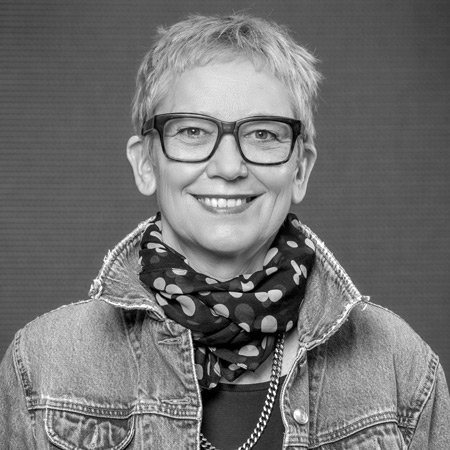
Stefanie Schulte Strathaus
Stefanie Schulte Strathaus is the Artistic Director of Arsenal – Institute for Film and Video Art. From 2006 to 2020 she was the founding director of the Berlinale section Forum Expanded. She curated exhibition and research projects such as “Living Archive – Archive Work as a Contemporary Artistic and Curatorial Practice” (2010–2013) and “Archive außer sich” (2017–2022). In 2021 she launched the biennial festival Archival Assembly. Schulte Strathaus serves on the boards of the Harun Farocki Institut and the master’s programme “Film Culture” at the University of Jos/Nigeria. She is co-editor (with Vinzenz Hediger) of Accidental Archivism: Shaping Cinema’s Futures with Remnants of the Past (2024).
Stefanie Schulte Strathaus est la directrice artistique d'Arsenal - Institute for Film and Video Art. De 2006 à 2020, elle a été la directrice fondatrice de la section Forum Expanded de la Berlinale. Elle a été commissaire d'expositions et de projets de recherche tels que « Living Archive - Archive Work as a Contemporary Artistic and Curatorial Practice » (2010-2013) et « Archive außer sich » (2017-2022). En 2021, elle a lancé le festival biennal Archival Assembly. Schulte Strathaus siège au conseil d'administration de l'Institut Harun Farocki et du programme de master « Film Culture » à l'Université de Jos/Nigeria. Elle est co-éditrice (avec Vinzenz Hediger) de Accidental Archivism: Shaping Cinema’s Futures with Remnants of the Past (2024).
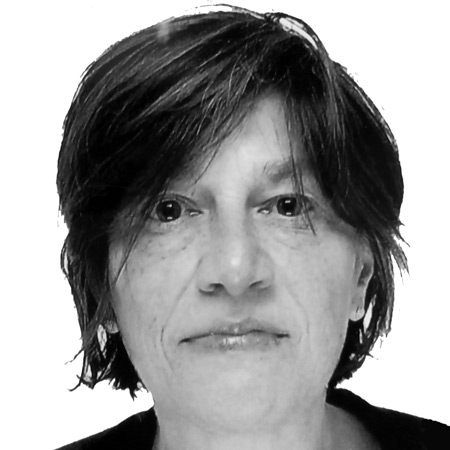
Katia Rossini
Katia Rossini likes to define herself as a film activist, curator, and archivist, interested in networks, participative projects, and alternative forms of curating cinema. She is co-founder of Cinema Nova (Brussels). Opened in 1997, Nova is an independent cinema with a programme entirely dedicated to independent, auteur, and partly heritage films. She has collaborated with numerous festivals and other film-related events in Belgium and elsewhere, giving priority to alternative and community networks, while also focusing on experimental cinema. She has helped to launch the Filmlabs.org and Kino-Climates.org networks. After completing a specialization in Film Preservation and Restoration at UvA (Amsterdam), she has become head of collections at Argos – Centre for Audiovisual Arts (Brussels). She is currently working on projects revisiting the first decades of video art and experimentation in Belgium.
Katia Rossini aime se définir comme une activiste du cinéma, une conservatrice et une archiviste, intéressée par les réseaux, les projets participatifs et les formes alternatives de conservation du cinéma. Elle est cofondatrice de Cinema Nova (Bruxelles). Ouvert en 1997, le Nova est un cinéma indépendant dont le programme est entièrement consacré aux films indépendants, aux films d'auteur et en partie aux films de patrimoine. Elle a collaboré avec de nombreux festivals et autres événements cinématographiques en Belgique et ailleurs, en privilégiant les réseaux alternatifs et communautaires, tout en se concentrant sur le cinéma expérimental. Elle a participé au lancement des réseaux Filmlabs.org et Kino-Climates.org. Après avoir suivi une spécialisation en préservation et restauration de films à l'UvA (Amsterdam), elle est devenue responsable des collections à Argos - Centre des arts audiovisuels (Bruxelles). Elle travaille actuellement sur des projets qui revisitent les premières décennies de l'art vidéo et de l'expérimentation en Belgique.
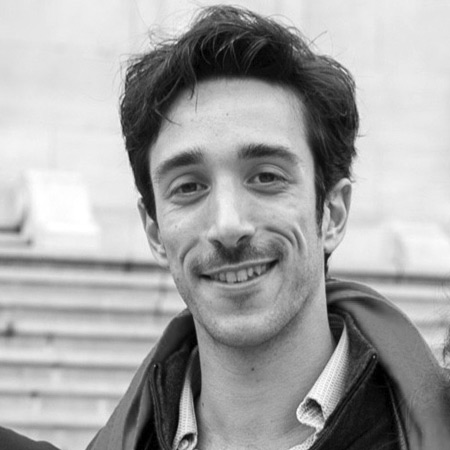
Federico Lancialonga
Federico Lancialonga has a doctorate and teaches film studies. He is a documentalist and is in charge of archive promotion at Ciné-Archives (Fonds audiovisuel du PCF et du mouvement ouvrier). His research focuses on militant cinema in Italy and France in the 1960s and 1970s. He has contributed to the promotion of this heritage through programmes organized in both countries, including retrospectives, symposia, and festivals. In 2018, he co-organized with Nicole Brenez two screenings at the Cinémathèque française devoted to rushes and previously unseen films shot during May 68 in France, rediscovered almost 50 years later in Rome in the archives of the AAMOD (Archivio Audiovisivo del Movimento Operaio e Democratico).
Docteur et enseignant en études cinématographiques, Federico Lancialonga est documentaliste et chargé de la valorisation au sein de Ciné-Archives (Fonds audiovisuel du PCF et du mouvement ouvrier). Ses recherches portent sur les cinémas militants italiens et français des années 1960 et 1970. Il a contribué à la mise en valeur de ce patrimoine à travers des programmations organisées dans les deux pays, notamment lors de rétrospectives, colloques et festivals. En 2018, il a coorganisé avec Nicole Brenez deux séances à la Cinémathèque française, consacrées à des rushes et films inédits tournés pendant Mai 68 en France, retrouvés près de cinquante ans plus tard à Rome dans les archives de l’AAMOD (Archivio Audiovisivo del Movimento Operaio e Democratico).
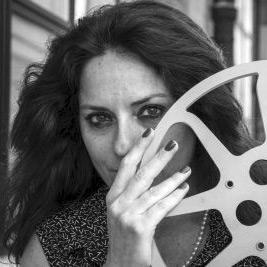
Aurora Palandrani
Aurora Palandrani is a member of the Board of the Archivio Audiovisivo del Movimento Operaio e Democratico (AAMOD) and part of its Executive team. Born in 1971, she has worked for several years organizing festivals, events, conferences, and seminars in the fields of documentary and fiction cinema. From 1999 to 2001 she worked at the Associazione Fondo Pier Paolo Pasolini, where she supervised and coordinated complete film retrospectives in Italy and abroad. Since 2001 she has worked in organizational coordination for the cultural initiatives of the AAMOD Foundation, focusing on communication, dissemination, and promotion. She has collaborated on planning and coordinating numerous festivals and seminars, including Il Primo Maggio sullo Schermo (Rome, 2002), Zavattini Sonotraccia (Rome, 2009), Cile 40 Anni Dopo (Rome, 2013), Gli Anni del Vietnam: 40 Anni Dopo (Rome, 2015), Pier Paolo Pasolini - 40 Years Without (Rome, 2015), and Cineforum Palestina (2013 to date). Since 2016 she has been the organizational coordinator of the UnArchive Premio Cesare Zavattini and more recently, she has been involved in organizing the Aperossa project, UnArchive Artistic Residence Sound and Vision and UnArchive Found Footage Fest.
Aurora Palandrani est membre du conseil d'administration de l'Archivio Audiovisivo del Movimento Operaio e Democratico (AAMOD) ainsi que membre de l'équipe de direction. Née en 1971, elle a travaillé pendant plusieurs années à l'organisation de festivals, d'événements, de conférences et de séminaires dans les domaines du documentaire et du cinéma de fiction. De 1999 à 2001, elle a travaillé à l'Associazione Fondo Pier Paolo Pasolini, où elle a supervisé et coordonné des rétrospectives complètes de films en Italie et à l'étranger. Depuis 2001, elle travaille à la coordination organisationnelle des initiatives culturelles de la Fondation AAMOD, en se concentrant sur la communication, la diffusion et la promotion. Elle a collaboré à la planification et à la coordination de nombreux festivals et séminaires, notamment : Il Primo Maggio sullo Schermo (Rome, 2002), Zavattini Sonotraccia (Rome, 2009), Cile 40 Anni Dopo (Rome, 2013), Gli Anni del Vietnam : 40 Anni Dopo (Rome, 2015), Pier Paolo Pasolini - 40 Years Without (Rome, 2015), Cineforum Palestina (2013 à ce jour). Depuis 2016, elle est la coordinatrice de l'organisation du UnArchive Premio Cesare Zavattini et, plus récemment, elle a participé à l'organisation du projet Aperossa, de la résidence artistique UnArchive Sound and Vision et du UnArchive Found Footage Fest.
11:00
Coffee Break
Pause café
11:30
The status of freelance programmer
Le statut de programmateur·trice indépendant·e
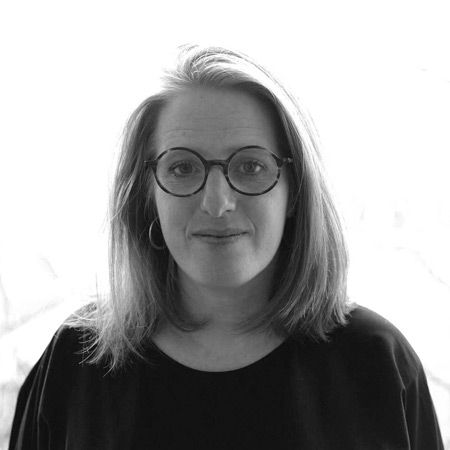
Léa Morin
Léa Morin is an independent programmer and researcher dedicated to the preservation, circulation, and study of fragile cinemas (prevented, unfinished, non-aligned) and to forms of struggle. She has directed the Cinémathèque de Tanger and co-founded the Observatoire (Art and Research) in Casablanca. Currently a member of the “Archives Bouanani: A History of Cinema in Morocco” team, the Intilak publishing collective (with Maya Ouabadi and Touda Bouanani), and the Talitha association (involved in the recirculation of sound and film works), she also leads the C3 research programme on Elías Querejeta Zine Eskola. In particular, she designed the CINIMA3 Łódź-Casablanca shared archive website www.cinima3.com. Her book Quelques événements sans signification à reconstituer, Casablanca - 1974, published in 2022 by Éditions Zamân, retraces her work on the restoration and recirculation of Mostafa Derkaoui's first film, De quelques événements sans signification.
Programmatrice et chercheuse indépendante, Léa Morin se dédie à la préservation, la circulation et l’étude des cinémas fragiles (empêchés, inachevés, non-alignés) ainsi qu’aux formes de la lutte. Elle a dirigé la Cinémathèque de Tanger et co-fondé l’Observatoire (Art et Recherche) à Casablanca. Actuellement membre des équipes des « Archives Bouanani : Une Histoire du cinéma au Maroc », du collectif éditorial Intilak (avec Maya Ouabadi et Touda Bouanani) et de l’association Talitha (engagée dans la recirculation d’œuvres sonores et filmiques), elle mène également le programme de recherche C3 à Elías Querejeta Zine Eskola. Elle a notamment conçu le site internet d’archives partagées CINIMA3 Łódź-Casablanca www.cinima3.com . Sa publication Quelques événements sans signification à reconstituer, Casablanca - 1974 paru en 2022 aux Éditions Zamân, retrace son travail de restauration et recirculation du premier film de Mostafa Derkaoui De quelques événements sans signification.

Oliver Hanley
Oliver Hanley is a film preservationist and curator based in Germany. A graduate of the University of Amsterdam’s Preservation and Presentation of the Moving Image M.A. programme, he has worked at the Deutsche Kinemathek in Berlin (2008-2011), the Austrian Film Museum in Vienna (2011-2016), and the Film University Babelsberg KONRAD WOLF (2016-2021) in Potsdam. In Vienna, he supervised the Austrian Film Museum’s DVD and online video publications alongside numerous preservation and restoration projects. During his time at the Film University Babelsberg, he regularly organized public screening events focusing on silent cinema and film restoration. He was appointed co-artistic director of the Bonn International Silent Film Festival in 2021 and curator of Il Cinema Ritrovato’s “One Hundred Years Ago” strand in 2023. Since 2022, he has also been working part-time as a film restorer for DFF – Deutsches Filminstitut & Filmmuseum, supervising digital restoration projects funded through a public grant scheme to digitize German film heritage, “Förderprogramm Filmerbe”. From 2018 to 2024, he was a member of FIAF’s Programming and Access to Collections Commission (PACC), having previously served as a corresponding member since 2016. In Autumn 2024 he succeeded Elaine Burrows as editor of FIAF's Journal of Film Preservation.
Oliver Hanley est un conservateur de films basé en Allemagne. Diplômé du programme de maîtrise en préservation et présentation de l'image en mouvement de l'Université d'Amsterdam, il a travaillé à la Deutsche Kinemathek à Berlin (2008-2011), au Musée autrichien du film à Vienne (2011-2016) et à l'Université du film Babelsberg KONRAD WOLF (2016-2021) à Potsdam. À Vienne, il a supervisé les publications de DVD et de vidéos en ligne du Austrian Film Museum, ainsi que de nombreux projets de préservation et de restauration. Pendant son séjour à la Film University Babelsberg, il a régulièrement organisé des projections publiques axées sur le cinéma muet et la restauration de films. Il a été nommé codirecteur artistique du Bonn International Silent Film Festival en 2021 et conservateur du volet « One Hundred Years Ago » de Il Cinema Ritrovato en 2023. Depuis 2022, il travaille également à temps partiel en tant que restaurateur de films pour le DFF - Deutsches Filminstitut & Filmmuseum, supervisant les projets de restauration numérique financés par un programme de subventions publiques visant à numériser le patrimoine cinématographique allemand, « Förderprogramm Filmerbe ». De 2018 à 2024, il a été membre de la Commission de Programmation et d'Accès aux Collections (PACC) de la FIAF, après avoir été membre correspondant depuis 2016. À l'automne 2024, il a succédé à Elaine Burrows en tant que rédacteur en chef du Journal of Film Preservation de la FIAF.
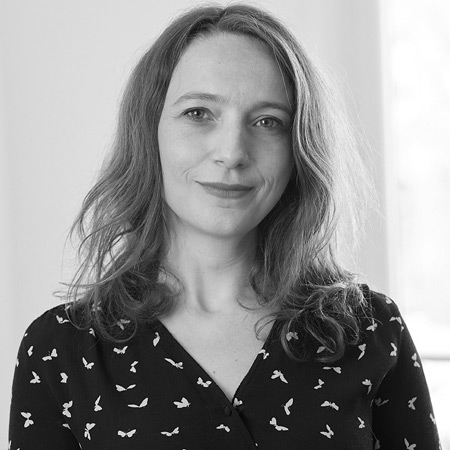
Elsa Charbit
Born in 1980, Elsa Charbit studied History and Cinema at the University of Paris 1 Panthéon-Sorbonne. From 2005 to 2015, she was in charge of organizing meetings, masterclasses, conferences, readings, and concerts at the Cinémathèque française as assistant to the director of Cultural Action. In 2015, she became director of the Festival du Cinéma de Brive - Rencontres internationales du moyen métrage, created in 2004 by the Société des réalisatrices et réalisateurs de films (SRF). From 2019 to 2021 she was the artistic director of Entrevues - Festival international du film de Belfort, created in 1986 by Janine Bazin and dedicated to 1st, 2nd, and 3rd short and feature films. A member of the selection committee for the Directors' Fortnight at the Cannes Film Festival in 2023 and 2024, she is currently in charge of developing the Cinémathèque idéale des banlieues du monde, a project initiated by filmmaker Alice Diop and co-sponsored by the Centre Pompidou and the Ateliers Médicis.
Née en 1980, Elsa Charbit a étudié l’Histoire et le Cinéma à l’Université Paris 1 Panthéon-Sorbonne. De 2005 à 2015, elle est chargée de l’organisation des rencontres, masterclasses, conférences, lectures et concerts de la Cinémathèque française en tant qu’adjointe à la direction de l’Action culturelle. En 2015, elle prend la direction du Festival du cinéma de Brive – Rencontres internationales du moyen métrage, créé en 2004 par la Société des réalisatrices et réalisateurs de films (SRF). De 2019 à 2021, elle est la directrice artistique d’Entrevues – Festival international du film de Belfort, créé en 1986 par Janine Bazin et dédié aux 1ers, 2èmes et 3èmes films de court et long métrage. Membre du comité de sélection de la Quinzaine des cinéastes au Festival de Cannes en 2023 et 2024, elle est actuellement chargée de développement de la Cinémathèque idéale des banlieues du monde, un projet initié par la cinéaste Alice Diop et co-porté par le Centre Pompidou et les Ateliers Médicis.
13:00
Lunch at the Cinémathèque française
Déjeuner à la Cinémathèque française
14:30
PACC Session:
How to programme classic cinema today, in the light of changing societal paradigms, in response to new audiences, avoiding the trap of self-censorship
Session de la PACC :
Comment programmer le cinéma classique aujourd'hui à la lumière des paradigmes sociétaux changeants, en réponse à de nouveaux publics, et en évitant le piège de l'autocensure
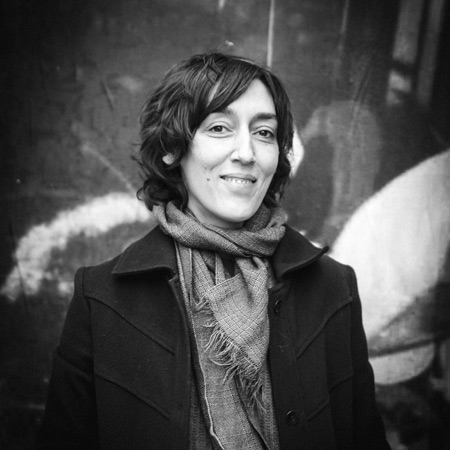
Samantha Leroy
Samantha Leroy is Head of Programming of the Fondation Jérôme Seydoux – Pathé’s cinema since 2020, which is dedicated to the programming of international silent films with live accompaniment all year round. She studied cinema and promotion of film heritage at university, but also thanks to ACE and FIAF training courses (ARCHIMEDIA, Film Restoration Summer School), while working as a projectionist. She was put in charge of film research and access at the Centre national du cinéma et de l’image animée (CNC). She then worked at the Cinémathèque française from 2005 to 2019, where she provided access to the film collections and conceived programmes for festivals and cinematheques in France and abroad. She was also the coordinator of the international festival of restored films “Toute la mémoire du monde” for 7 years. Since 2016 she has co-organized the FIAF Winter School on “Programming Film Heritage”, and since 2023 has been a member of the FIAF Programming and Access to Collections Commission (PACC).
Samantha Leroy est responsable de la programmation cinéma de la Fondation Jérôme Seydoux - Pathé depuis 2020, programmation consacrée tout au long de l'année au cinéma muet international, avec accompagnement musical. Elle a étudié le cinéma et la valorisation du patrimoine cinématographique à l'université, mais aussi grâce aux formations de l’ACE et de la FIAF (ARCHIMEDIA, Film Restoration Summer School), tout en travaillant comme projectionniste. Elle a été documentaliste et chargée d'accès aux collections films au Centre national du cinéma et de l'image animée (CNC). Elle a ensuite travaillé à la Cinémathèque française de 2005 à 2019, où elle était chargée de l'accès et de la valorisation des collections films et concevait des programmations pour des festivals et des cinémathèques en France et à l'étranger. Elle a également été chargée de production et de dévelopement du festival international du film restauré « Toute la mémoire du monde » pendant 7 ans. Depuis 2016, elle co-organise la FIAF Winter School sur la « Programmation du patrimoine cinématographique » et depuis 2023, elle est membre de la Commission Programmation et Accès aux Collections (PACC) de la FIAF.
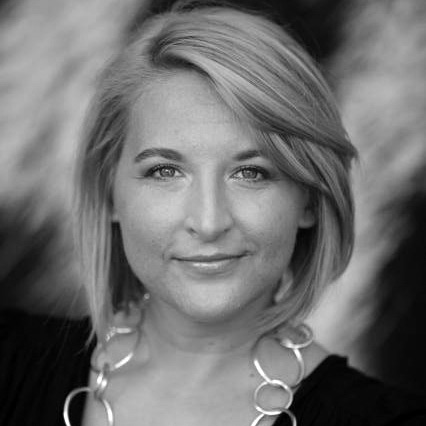
Chicca Bergonzi
Born in Milan in 1969, Chicca Bergonzi was Secretary General of the Filmmaker Association for the dissemination and promotion of Italian independent cinema (1994-1996), co-directed Invideo – International Exhibition of Video Art and Cinema Beyond (2001-2007), and co-founded the Swiss Short Film Agency. She was also Head of the Leopards of Tomorrow section and Artistic Director at the Locarno Film Festival (1994-2009). In 2010 she joined the team at the Cinémathèque suisse, where she is currently Head of the Programming and Promotion Department. Lastly, Bergonzi is a member of FIAF's Programming and Access to Collections Commission (PACC) and of the Executive Committee of ACE - Association Cinémathèques Européennes.
Née en 1969 à Milan, Chicca Bergonzi a été Secrétaire Générale de l’Association Filmmaker pour la diffusion et promotion du cinéma indépendant italien (1994-1996), a co-dirigé Invideo – Mostra internazionale di video e cinema oltre (2001-2007) et a co-fondé l’Agence suisse du court-métrage. Elle a également été Responsable de la section Léopards de demain et déléguée à la direction artistique au Locarno Film Festival (1994-2009). En 2010 elle a rejoint l’équipe de la Cinémathèque suisse, dont elle est actuellement la Directrice Pôle Valorisation. Enfin, Bergonzi est membre de la Commission de programmation et d’accès aux collections (PACC) de la FIAF et du Comité exécutif de l’ACE - Association Cinémathèques Européennes.
